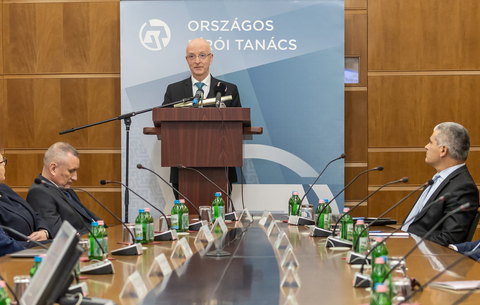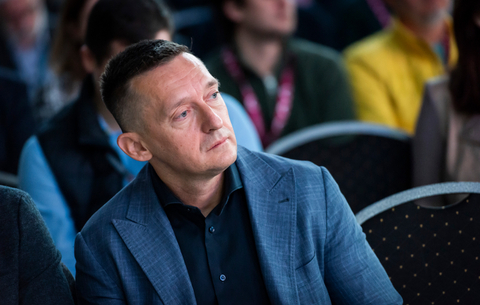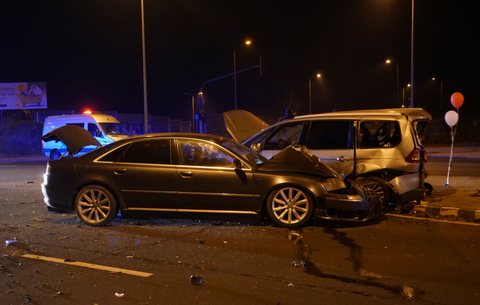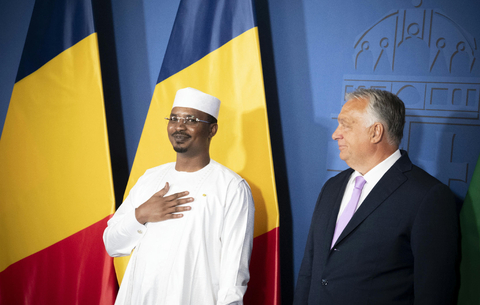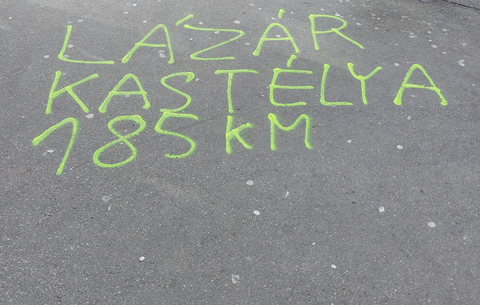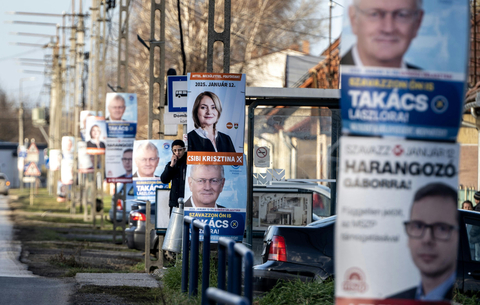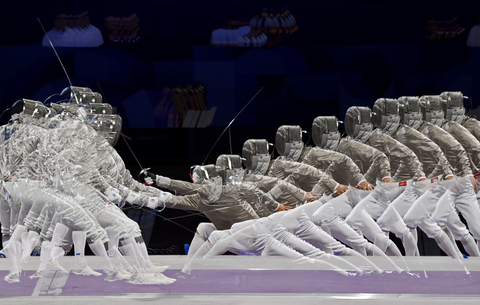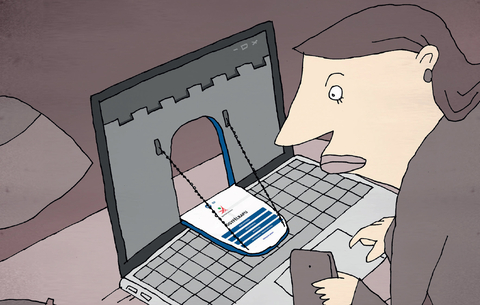"Whoever loses has to open up to the other side"
Failure in the European Parliament elections would not bring the Romanian government down, according to Attila Korodi, the 30-year-old Romanian enviornment minister. One of his main tasks, he says, is to interdict the cyanized gold mining that has already poisoned the river Tisza once.
Does Laszlo Tokes's candidacy in the European Parliament elections mean the Hungarians of Transylvania will not be represented at all, or might both he and the Democratic Alliance of Hungarians in Romania gain representation?
A.K.: It would take 8 per cent of the vote for both of us to succeed, while Hungarians only make up 6.7 per cent of the Romanian population. With Viktor Orban's visits to Transylvania, the number of people who are voting Tokes for emotional reasons has grown, but I don't think the bishop has any chance of getting a seat in the EP. The RMDSZ does have a chance, however, especially if our local organisations work.
Regardless of the result, however, we have to rethink the basis of Transylvanian Hungarian politics. Whoever loses has to open up to the other side. A failure wouldn't undermine our role in government, although we would be more limited in what we could achieve in government. Interventions in Transylvanian Hungarian politics, whether from Budapest or Bucharest, are dangerous, and it is important for us to be represented in Brussels so people are aware we exist.
How much do EU criticisms influence Romanian domestic politics – whether these relate to the justice system or to mass migration?
A.K.: Officially, the Commission doesn't really attack Romania. It's the EP that makes criticisms. It's also relevant that the European People's Party is more interested in the Romanian Democratic Party, currently in opposition, which is larger in the region than Fidesz. Emigration is a major issue. There are at least a million Romanians each in Italy and Spain, although there are no official statistics – especially concerning how many of these people are Roma. But the whole of Europe must accept that many gypsies have been a migratory people for centuries. The Italians made a mistake by only waking up to the security implications very late in the day. In Romania, those social groups that contribute most of the emigration are less problematic from a public order point of view.
© Végel Dániel |
Both Romania and Hungary saw at first hands the dangers of using cyanide for gold mining in 2000. What is the situation at Rosia Montana now? Will that vast goldmine be built, once again threatening both countries?
A.K.: Opinion polls show the vast majority – 82 per cent – are opposed to opening a mine in Rosia Montana. There is a range of plans, and civil society organisations are criticising them. The matter is before the courts. The Environment Ministry has suspended the authorisation process until the trial is over. The law forces me to do this, even though the Canadian company has sued the ministry and me personally for compensation.
You're not scared of another Bucharest miners' march targeted against your policies?
A.K.: The Zsil valley miners wouldn't get up in arms over Rosia Montana. It only affects a few hundred families, and even the Romanian orthodox church has protested against opening the mine. The best thing would be for parliament to pass our draft law banning cyanide-based mining. In this case, they would use new, undoubtedly more expensive, technologies, which would be less damaging to the environment, or they would have to give up on the mine.
That's the Eckstein-Peter Kovacs proposal, which is supported by Gheorghe Funar, the former mayor of Cluj, who was notoriously anti-Hungarian.
A.K.: Yes, you can work even with Funar in these kinds of technical questions. The nationalist politicians worry that the ownership structures behind the goldmine aren't clean. The Romanian temporary MEP's are also trying to get cyanide-based techniques banned. Things would be different with a new government. The persident's party, the Democratic Party, supports opening the mine and would accelerate the authorisation process. That's obvious, because the marketing company that organised President Basescu's electoral campaign is organising the goldmine campaign. It's an unusual situation, because the liberal party and the RMDSZ is covering with twenty-something per cent of the votes in parliament, but I don't think the government will fall. The Social Democrats aren't ready for the elections, so they are continuing to support the coalition for the outside, and their support helps them put the breaks on the president, who is extremely authoritarian.
Does the environment ministry in Romania have strong powers?
A.K.: I was able to shut down the second largest oil refinery in the country, in Pitesti, for one and a half months because it failed to meet environmental guidelines. We were able to shut down an Austrian-owned factory for the same reason, and we got support for this action in the media and in the press. Another example: the law says that Romanian cities have to reach the EU average of 26 square metres of green for each inhabitant. In Bucharest, each person has an average of 9 square meters, so the old industrial zones need to be turned into green spaces. Since the law prevents building in existing green spaces, we have to force the building works further out, creating new green belts. But there are areas where the environment ministry is behind. Hungary, for example, is trying to make Romania sign up to the ban on genetically modified plants, but the agriculture ministry in Bucharest has thus far proved stronger.
And how do things stand with your obligations under the EU? Will there be money to meet your responsibilities?
A.K.: We have fairly long term derogations. We have to meet waste disposal guidelines by 2015, and we'll probably have to reach the EU average by 2018. Big industrial concerns have up to eight years. If they don't meet the requirements, they have to be shut down. That's what happened with the Pitesti refinery, and it could happen with other polluters, including a lead processing plant in Nagybanya. We reckon it will cost 29.3bn euros by 2018 for Romania to catch up on infrastructure and enviromental standards. The EU will provide some 40 per cent of this.
Thanks to economic growth we also have our own resources, which should extend to financing projects like the Northern Transylvanian motorway, which is important for Hungary as well.
GERGELY FAHIDI

